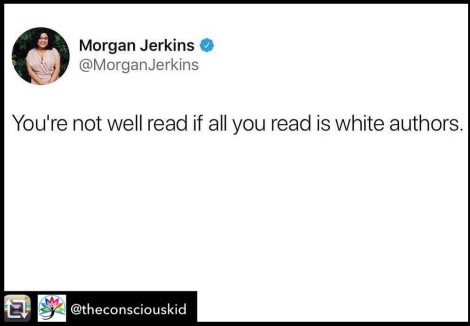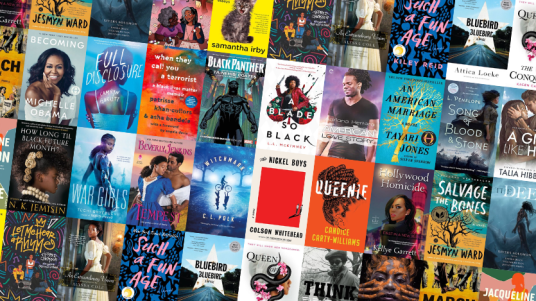Whoa! It’s September. I’m actually pretty good with that since this year has been a challenge in so many ways. Settling into the back half of the year, I wanted to share what I’ve recognized in my reading this year and what I’m changing. My 2020 reading started off strong and I was on track for a personal goal of 35 books in 2020 but low and behold as our world was taken hostage by Covid-19, I slowed down. I’m not sure I can accurately explain why but I was distracted and watched a lot of CNN instead.
Putting the pandemic aside I can also blame Eric Larsen for my dip in reading productivity. Larsen is a remarkably talented author but, Devil in the White City just wasn’t for me. It took me over 6 weeks to read this historical telling of the 1893 World’s Fair and serial killer H.H. Holmes and I can’t say I really enjoyed it. By the time I read the last page (in the middle of the night because I had pandemic-induced insomnia) I had some sort of reading exhaustion. I purposely moved to something much lighter and picked up Firefly Lane by Kristen Hannah but found it draggy and disappointing, so another 5 weeks went by.

Finally, I found inspiration to pick up the pace in two forms. The first was the beloved summer reading guides found all over the internet. I love them. They remind me of when the special issue of TV Guide that would come out in August in the 80s and 90s with the previews for the new fall season of tv shows. I find my SRGs on lithub, NY Times and my personal bible of year-round reading, Modern Mrs Darcy – Anne Bogel is my literature guru. I like to make a new TBR (To Be Read) list just for summer reading that tend to be a little lighter and faster paced. Some of the ‘hits’ from this summer were Code Name Hélène by Ariel Lawhon, Summer of ’69 by Elin Hilderbrand and State of Wonder a backlist title by Ann Patchett, but I also added some titles not because they were easy breezy but because I needed to make a change in how I chose my books, or my authors to be more precise. Which leads me to inspiration #2.
I was given a ‘your not so great’ wake up call in the form of this Instagram post by author Morgan Jerkins shared by @theconsciouskid:

Oh shit. I just got called out, and rightly so. I re-read Their Eyes Were Watching God by Zora Neale Hurston last fall, I’ve read the bestsellers from authors such as Celeste Ng, Jhumpa Lahiri and Toni Morrison, but truth be told my current reading life was saturated with white women. Ann Patchett, Liane Moriarty, Liz Gilbert, Elin Hilderbrand – they are my usual suspects, and I love their work, but Jerkins was right. I did not have the diversity in my reading life to call myself well-read and it was shameful. If I wanted to truly be the writer, reader, friend with great recommendations that I want to be, I needed to make some conscious choices about what I read next. It was time to expand my knowledge of black literature and seek out more work by black authors (okay, female black authors because baby steps).
In June, I downloaded Why I’m No Longer Talking to White People About Race by Reni Eddo-Lodge on audible (review here) by recommendation from a friend. Later that month, my mind was blown by the brilliance of Brit Bennett and her novel The Vanishing Half (review here), this is actually my favorite read so far of 2020. I also read Such A Fun Age, a debut novel by Kiley Reid (review here) and currently listening to I Know Why the Caged Bird Sings on audible, Maya Angelou’s autobiography. Soon I’ll be reading An American Marriage by Tayari Jones as soon my sizable order from Trident Booksellers arrives (I celebrated indie bookstore day the best way possible).
It’s important here to talk about being mindful in choices while broadening your reading. I recently found this interesting post by Australian blogger Lauren Beckman about diversifying your reading for the right reasons. For example, if you decide to read Sing, Unburied, Sing, read it because it’s brilliantly written, a fascinating story and likely a beautiful departure from anything you have read before. Don’t read it so you can snap a photo for your Instagram page with the hashtag #blackauthors. Find the books by black authors that interest you and appreciate that the author’s voice will have a new perspective for you to embrace. Ideally it’s an opportunity to learn while enjoying a great read. Then, by all means, go ahead and post the photo with the hashtag #blackauthors to help your friends find a new great read and support the author.

I should clarify that I am not exclusively selecting books by black authors which would feel unnatural and insincere. I am consciously putting titles by black authors at the top of my TBR list which currently has 223 titles and no system in place of what comes next. The books I am choosing by black authors are close to my wheelhouse with strong female characters and a fast gripping plot. I’m not just choosing the books because of the author’s race but seeking out books by black author’s that I find compelling. I’m not sure if that’s the right way to do it but it’s where I’m starting.
Admittedly, the books I chose to kick off this effort are also ones that are widely known right now after appearing on the now heavily published articles listing all the Books by Black Authors to Read (here, here, and here for example). I’ve never gone looking for these lists before so I don’t know how available they have been but they haven’t been in my daily inbox like the lists of historical fiction, new authors and lighthearted fiction to help survive quarantine. The publishing world itself has a severe lack of diversity and promote white authors differently than black/ BIPOC authors. Literature written by BIPOC authors has been virtually hidden unless you go looking and since the typical American only reads 4 books per year they aren’t going to go digging for something new and different. They are going to grab the ‘talked about’ book recommended by Oprah or Reese.

Frankie Reddin shared in this Bazaar article from June of this year,
“Specific to literature, we as Black publishers see first-hand how Black writers are marginalized or hidden by the mainstream. Examples include publications refusing to review a book because they have dismissed it as too niche (too Black or not Black enough) and not of interest to their readers regardless of the quality of the writing.”
I realize this is just a start for me. Picking up a handful of books is not radical reform and it’s not going to change our problem with racism in this country, that’s not what this post is about. I know to be a stronger ally for the black community I need to expand my knowledge of the culture and continue learning – books, both fiction and non-fiction, are how I do that. I also want to support author’s who deserve to be read and support a community of black authors that have been competing for attention at a disadvantage. To be able to throw my support to these talented artists and get to enjoy their beautiful work is a privilege.
Getting back to my reading goals this year, I’ve already mentioned that I am ‘behind’ for 2020 but maybe its time I ignore the arbitrary number Goodreads encouraged me to set earlier this year, back when there was no reason to think the year would be different from any other. It only makes sense to shift focus to exclusively quality reading not quantity and continue with the efforts I’ve made to include diverse authors and points of view, more non-fiction to further personal knowledge and challenging my literature comfort zone with works I wouldn’t normally select. If I continue the trend and at the end of the year I have a list of books I am proud to have read, reviewed and recommended I will be satisfied and closer to the ultimate goal of being truly well-read.

Please comment below with titles and authors you would suggest. I can’t wait to see what you all have been reading.